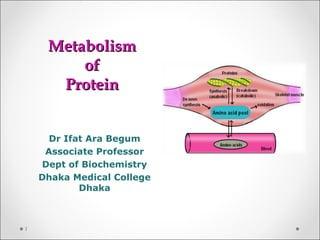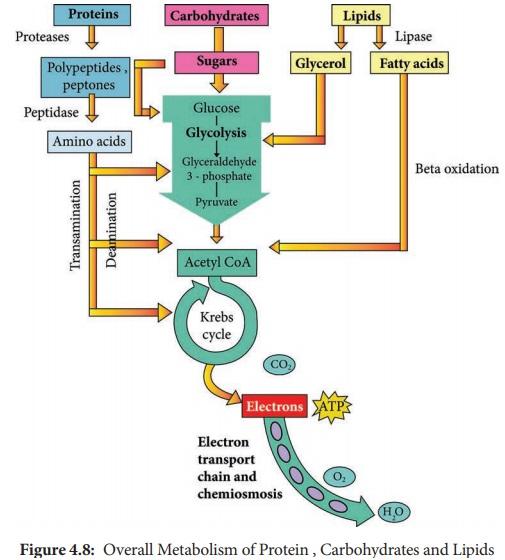In the intricate symphony of life, where each biological process plays its unique melody, proteins stand as the master conductors orchestrating the harmonious interplay of our metabolism. These complex molecules, composed of amino acids, are not merely the building blocks of muscle and tissue; they are the unsung heroes of metabolic health. From the moment we savor a morning meal to the final hours of our day, proteins work tirelessly behind the scenes, influencing everything from energy production to hormone regulation. As we delve into the vital role of protein in metabolic health, we uncover a narrative that extends beyond dietary needs, revealing the profound impact these molecules have on our overall well-being. Join us as we explore how proteins fuel the body’s engine, maintain its delicate balance, and support a life of vitality and resilience.
Fueling Your Metabolism: The Role of Protein in Energy Balance
Protein is a powerhouse nutrient that plays a pivotal role in maintaining energy balance and boosting metabolic health. When consumed, it requires more energy for digestion, absorption, and metabolism compared to fats and carbohydrates. This phenomenon, known as the thermic effect of food, means that your body burns more calories processing protein, thus aiding in weight management. Additionally, protein supports the maintenance and growth of lean muscle mass, which is crucial because muscle tissue burns more calories at rest than fat tissue. Incorporating adequate protein in your diet can lead to a more efficient metabolism, helping you achieve and sustain your health goals.
- Satiety: Protein-rich foods help you feel fuller for longer, reducing the urge to snack and overeat.
- Muscle Maintenance: Essential for preserving muscle mass, especially during weight loss or aging.
- Hormonal Balance: Influences hormones that regulate appetite and energy metabolism.

Building Blocks of Life: How Protein Supports Cellular Function
Proteins are the unsung heroes within our cells, tirelessly working behind the scenes to maintain the delicate balance required for optimal health. As the architects of cellular structure, proteins are fundamental to the construction and repair of tissues. They act as the scaffolding that holds our cells together, providing the framework for the body’s physical form. But their role extends far beyond mere structure; proteins are dynamic molecules that drive the biochemical processes essential for life.
- Enzymatic Catalysts: Proteins function as enzymes that accelerate chemical reactions, ensuring that metabolic processes occur swiftly and efficiently.
- Transport and Storage: Certain proteins are tasked with transporting vital molecules across cellular membranes and storing essential nutrients.
- Signal Reception and Transmission: Proteins serve as receptors and messengers, facilitating communication within and between cells.
- Defense Mechanisms: Antibodies, a type of protein, play a crucial role in the immune response, identifying and neutralizing pathogens.
By orchestrating these complex interactions, proteins enable cells to perform their diverse functions seamlessly, ensuring that the body operates as a harmonious whole. Without these multifaceted molecules, our cellular machinery would falter, leading to disruptions in metabolic health.

Dietary Protein: Strategies for Optimizing Metabolic Health
In the quest for enhanced metabolic health, dietary protein plays a pivotal role, acting as a cornerstone for numerous physiological processes. It not only aids in muscle repair and growth but also significantly influences metabolic rate. Consuming adequate protein can help maintain lean body mass, which is essential for a robust metabolism. Here are some strategies to optimize protein intake for metabolic health:
- Diversify Protein Sources: Incorporate a variety of protein-rich foods such as lean meats, fish, legumes, and dairy to ensure a broad spectrum of amino acids.
- Prioritize Quality Over Quantity: Opt for high-quality proteins that are efficiently utilized by the body, such as those found in eggs and quinoa.
- Spread Protein Intake: Distribute protein consumption evenly across meals to support muscle protein synthesis throughout the day.
- Combine with Physical Activity: Pairing protein intake with resistance or strength training can further amplify metabolic benefits.
By implementing these strategies, individuals can harness the full potential of protein to support metabolic health, ensuring a more efficient and resilient body.

Choosing the Right Protein Sources for a Balanced Metabolic Boost
To truly harness the power of proteins for metabolic health, it’s crucial to select sources that offer a spectrum of nutrients while promoting sustainable energy. Opt for lean meats like chicken and turkey, which are not only rich in protein but also low in saturated fats, making them an ideal choice for maintaining cardiovascular health. Fish, particularly fatty types like salmon and mackerel, are packed with omega-3 fatty acids that support brain function and metabolic efficiency.
- Plant-Based Options: For those embracing plant-based diets, legumes such as lentils and chickpeas offer robust protein content along with essential fibers that aid digestion.
- Nuts and Seeds: Almonds, chia seeds, and flaxseeds provide healthy fats and proteins, fostering a balanced metabolic rate.
- Dairy Products: Incorporate Greek yogurt or cottage cheese for a protein-rich snack that also delivers calcium for bone health.
Remember, variety is key. Mixing different protein sources not only prevents dietary monotony but also ensures a comprehensive intake of essential amino acids, crucial for repairing tissues and sustaining metabolic vitality.






























